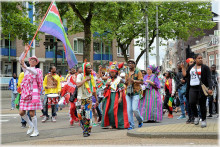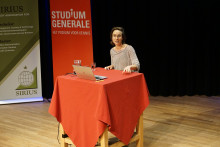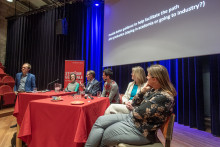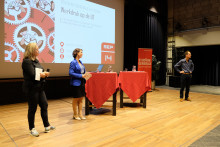How is a ‘Keti Koti Table’ set up?
Bakker: ‘Participants are assigned to another individual with a unique experience and sat across one another. They are provided with questions such as ‘Have you ever felt excluded?’ and take turns sharing their stories, followed by a moment of silence to allow their words to resonate. It is a dialogue born out of empathy and the intention to understand one another. In the midst of these exchanges, there is music by the Fri Yeye choir, food, and two individuals sharing their personal stories with the audience.’
How is this event related to the University of Twente?
Bakker: ‘The University of Twente is recognised as an institution dedicated to fostering inclusion and diversity. When considering the UT’s international community of multi-cultural students and staff, an exchange between approximately 100 individuals of various backgrounds seems to support the endeavour of bridging the inclusion gap. Simultaneously, many Dutch natives have a connection, in some form, to the history of slavery. The Keti Koti Table encourages individuals to engage in meaningful conversations, delve into their past, explore their present, and look into the future with hope, together.’
What do you hope the outcome of this event will be?
Bakker: ‘Keti Koti literally translates to ‘chains broken’. These broken chains are what we want to celebrate with this event. In a world that can feel hostile, we want to create a space of safety and sympathy. The essence of this new tradition lies in the sharing of experiences and the fostering of understanding of each other’s backgrounds. This is also why this event is free to ensure that everyone, regardless of their financial means, can participate. It also accommodates both Dutch and English speakers.’







